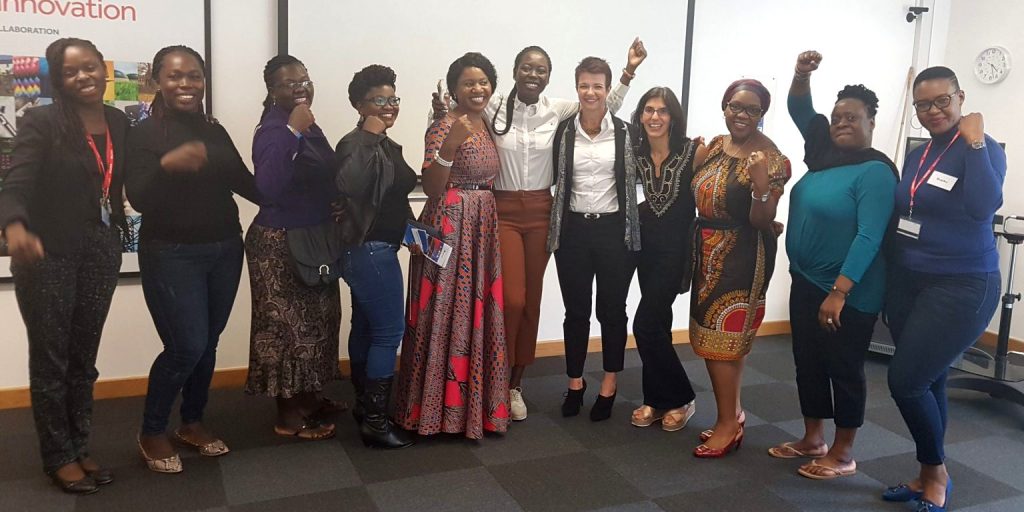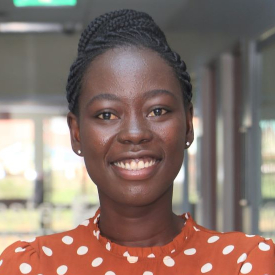What’s Gender got to do with Innovation?

Working together to understand why and how women are overlooked as innovators in Africa
The United Nations define the Sustainable Development Goals (SDGs) as a “…. call for action by all countries – poor, rich and middle-income – to promote prosperity while protecting the planet”. The shared responsibility to take action is very clear in that definition, but it surely does not end with the responsibilities of different countries? What about the responsibilities of different organisations, and even individuals, within countries? And if organisations and individuals need to take action, what resources do they need?
There are numerous answers to those questions, but perhaps knowledge is at the heart of many. Knowledge is a key resource to enable local action to address local and ultimately global challenges. Not the only resource of course, but if knowledge is power then it’s a good place to start. In that case, one fundamental question becomes how to get the right knowledge in to the hands of those best placed to take action? That highlights the need to understand the systems and institutions of knowledge production and exchange.
Evidence from developed countries make clear that effective collaboration between universities and stakeholders, including business, can be a powerful route for knowledge exchange. Based on this experience, low- and medium-income countries are being encouraged to stimulate effective linkages between their own research base and research users. That’s not to say that university-industry linkages are not already happening in developing countries. They are, of course, but how do they work? What type of collaboration works in Africa, what doesn’t, and why? And what kind of ‘ecosystems’ do African research institutions require to build their capacities and ensure that their activities go to benefit local communities?
Those are important questions for the GCRF-funded RECIRCULATE project. The project’s Entrepreneurship and Innovation research is investigating the intricate issues surrounding ongoing interactions between researchers and research-users across Africa. We see that as essential if our wider scientific and technical research in to the “circular water economy” is to be applied in and for communities that are facing the inter-linked challenges of poor sanitation, limited access to both reliable and sustainable energy and healthy, affordable food.
Our starting point is that understanding the dynamics that pertain to Africa regarding entrepreneurship, innovation, and knowledge exchange is essential to promote ‘eco-innovation ecosystems’ that work in African countries. My own interest is the specific question of how we guarantee that these systems of collaborative innovation are mutually beneficial to all participants involved, regardless of gender and other characteristics?
In my view, understanding gender is vital if we are to understand ‘eco-innovation ecosystems’ that work in African countries. Women have key roles as ‘change makers’ everywhere but my involvement in RECIRCULATE has highlighted to me the diversity of that role in Ghana, Nigeria and beyond. Through the project’s initiative of the Women Innovators for Africa (WINA) network, I have come across some inspirational women entrepreneurs from Zambia and South Africa who are changing the narratives on entrepreneurship and innovation in Africa. One of such powerful change agents is Sylvia Mwansa who runs a popular family business in Zambia called the SMB Centre for Choice, which she also uses as an avenue to engage and share knowledge with other entrepreneurs. But female change makers in Africa are very diverse in what they do, and how they do it. In some cases the changes are profound, but the ways they are achieved are so subtle that they are easily overlooked by wider society. For example, the RECIRCULATE Entrepreneurship and Innovation team have been investigating the role of market queens in promoting eco-innovation in Ghana. We have found that market queens in Ghana not only had in place strategic leadership systems to run the market economy, but also used these systems to make the production and consumption of food more sustainable.
Meeting these diverse change makers informed the objectives of my PhD research project. My overall aim is to understand the dynamics of university-industry interactions in Africa (i.e. knowledge, transferred knowledge, innovation, modes of interaction, etc.). I will also identify what characterizes the university-industry knowledge exchange ecosystem in Africa. These ‘high-level’ objectives then frame and inform my specific aim to understand the specific role that gender plays in the exchange of knowledge and technology between universities and industries in sub-Saharan Africa. For RECIRCULATE that will apply especially to knowledge exchange that relates to the project’s aim of developing new approaches to the “circular water economy”. As my colleagues in University of Benin and here at Lancaster have highlighted from their different research perspectives, I have no doubt that understanding gender issues is central to that aim.
That brings me back to the UN’s points about the shared responsibility for action to deliver the SDGs that I highlighted at the beginning to this blog. I hope that my research will contribute to a coherent and systematic understanding of the link between businesses and universities. In turn, that will provide guidance and encourage academia-industry collaborations in Africa. In particular, I want my research to help reduce the chances of innovation schemes that are gender-biased. That is inseparable from RECIRCULATE’s wider aim of delivering research that is “with, in and for the community”. We must be sure that ‘the community’ means the whole community.
 |
Afua Konadu Owusu-Kwarteng is a graduate researcher working at Lancaster University, UK and is completing a PhD funded by Lancaster University contributing to Work Package 1 (Entrepreneurship and Innovation) of the RECIRCULATE Project. Afua has an Advanced Master’s degree in Development Evaluation and Management from the University of Antwerp, and a Bachelor’s degree in Social Work and Sociology from the University of Ghana. Before coming to Lancaster, Afua worked as the Research/Engagement Officer for the Women Innovators Network for Africa at Lancaster University Ghana. Afua is passionate about issues of gender and poverty inequality in Africa and is keen on using her research to address these challenges. If you are interested in the WINA network please email Afua. |
All articles in The FLOW are published under a Creative Commons — Attribution/No derivatives license, for details please read the RECIRCULATE re-publishing guidelines.
